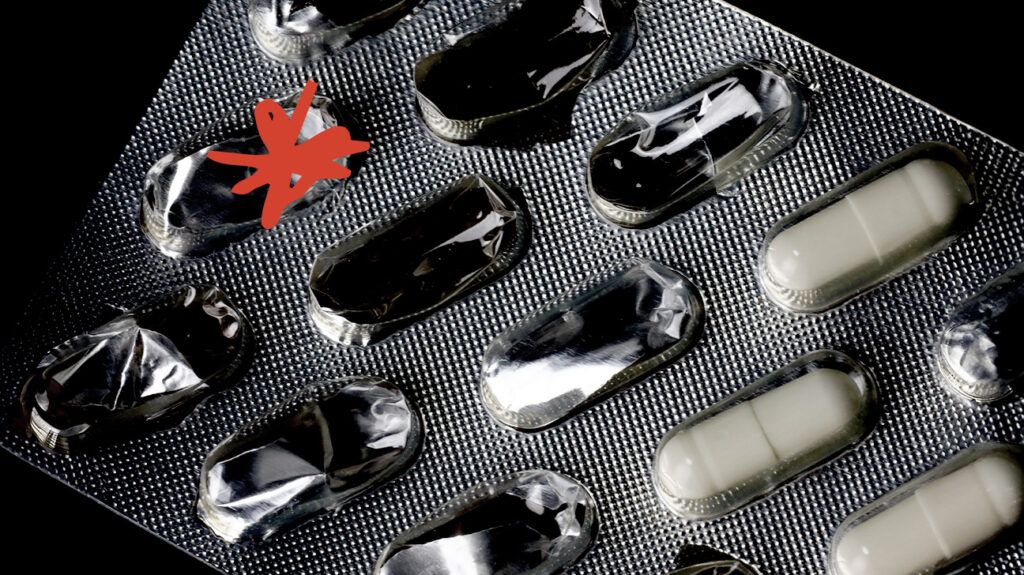Because von Willebrand disease (VWD) is a bleeding disorder, people with the condition should avoid medications that can increase the risk of bleeding or interfere with blood clotting.
Medications, such as aspirin and nonsteroidal anti-inflammatory drugs (NSAIDs), can interfere with platelet function, increasing the likelihood of bleeding episodes.
Anticoagulants, herbal supplements, and certain antibiotics may also pose risks for people with VWD, as they can affect blood clotting mechanisms.
This article examines the kinds of medications to avoid with VWD, which treatments and therapies are safe, ways to manage symptoms without medication, and when to seek medical attention.

Von Willebrand disease (VWD) is a bleeding disorder characterized by a deficiency or dysfunction of the von Willebrand factor (VWF), a crucial component for blood clotting.
As such, certain kinds of medications and supplements are not always safe for people with VWD.
For instance, antiplatelets and anticoagulants are medications that delay blood clotting or make it more difficult for blood clots to form.
Sometimes called “blood thinners,” examples of antiplatelet and anticoagulant medications include clopidogrel, warfarin, heparin, and direct oral anticoagulants (DOACs).
Other medications that can interfere with platelet function or blood clotting include:
- pain medications,
such as aspirin and NSAIDs, including ibuprofen and naproxen - certain herbal supplements, such as ginkgo biloba, garlic supplements, and omega-3 fatty acids
- some antiseizure medications, including phenytoin and valproic acid
Additional medications that can interact with the drug classes mentioned above and can further increase the risk of bleeding include:
- antibiotics, such as ciprofloxacin and sulfonamides
certain oral antifungal medications, such as fluconazole- some antidepressants, including certain selective serotonin reuptake inhibitors (SSRIs)
At first glance, some medications and supplements that can affect bleeding and blood clotting do not seem related, making it all the more important to talk with a healthcare professional about what is and is not safe.
The following medications and therapies can help treat VWD and related symptoms:
- Desmopressin (DDAVP): This synthetic form of the natural hormone, vasopressin, promotes the release of von Willebrand factor and factor VIII into the bloodstream. It is available as an injectable or inhalant and is a common treatment for mild bleeds.
- Factor replacement therapies: These therapies elevate the concentration of factors in the body, promoting improved clotting capabilities.
- Antifibrinolytic drugs: These are clot-stabilizing medications that help slow or stop the breakdown of blood clots and are especially
useful in the perioperative management of people with VWD. - Hormonal therapy: Doctors may recommend oral contraceptives or other hormonal therapies to help regulate and lessen menstrual bleeding.
- Pain medication: As an alternative to aspirin and NSAIDs, doctors may prescribe opioid or non-opioid pain medication or recommend over-the-counter (OTC) pain medication, such as acetaminophen.
Learn more with our guide to treatment for von Willebrand disease.
Below are some general suggestions for managing VWD without medication.
- Schedule regular checkups and discuss any changes in symptoms.
Maintain a balanced, iron-rich diet, particularly if there is a history of anemia.- Try physical therapy for joint pain and swelling.
- Consider using a soft toothbrush to minimize the risk of bleeding gums.
- Take precautions to prevent injuries. Wear proper clothing, footwear, and appropriate protective gear when engaging in sports and exercise.
Additionally, healthcare professionals may recommend adopting a heart-healthy lifestyle for overall health and for lowering the risk of coronary heart disease, which can be difficult to treat in people with VWD.
Some ways to do this include:
- eating heart-healthy foods
- exercising regularly
- maintaining a moderate weight
- practicing stress management
- quitting smoking
Finally, experts emphasize the importance of emergency preparedness. This involves the person preparing themselves and others, including emergency responders, for a bleeding emergency before such an emergency happens.
Emergency preparedness for someone with VWD may look like:
- wearing a medical alert bracelet
- teaching family and friends how to prepare and administer medication
- knowing the location of the closest emergency room or hemophilia treatment center
- creating and keeping on hand a “go bag” with items, such as an emergency care letter, extra medication, and health insurance information
- keeping extra medication and supplies available
Someone with VWD should contact their doctor if they experience:
- prolonged or uncontrolled bleeding, such as frequent nosebleeds, heavy menstrual bleeding, or bleeding gums after brushing
- significant injury or trauma that results in bleeding or bruising
- blood in the urine or stool
- sudden, severe joint pain or swelling, especially if there is bruising
Additionally, someone with VWD should talk with a healthcare professional before any surgical or dental procedures to make sure there is a plan in place to manage bleeding risks. This may include medication adjustments or using clotting factor concentrates.
This section answers some frequently asked questions about medications and von Willebrand disease.
Can you take Tylenol with von Willebrand?
Acetaminophen is the active ingredient in Tylenol and is generally safe for people with VWD.
What pain meds can you take with von Willebrand disease?
Aside from acetaminophen, healthcare professionals may prescribe opioid pain medications.
Additionally, someone with VWD may talk with a doctor about topical pain relief creams.
What drug increases von Willebrand factor (VWF)?
Desmopressin (DDAVP) and factor replacement therapies can help increase VWF and factor VIII in the blood.
Overall, people with von Willebrand disease should be cautious about medications, such as aspirin and NSAIDs, that increase bleeding risks, as well as anticoagulants, certain herbal supplements, and some antibiotics, as they can interfere with blood clotting.
People with this condition should speak with a healthcare professional about the risks and benefits before starting or changing any medication.
